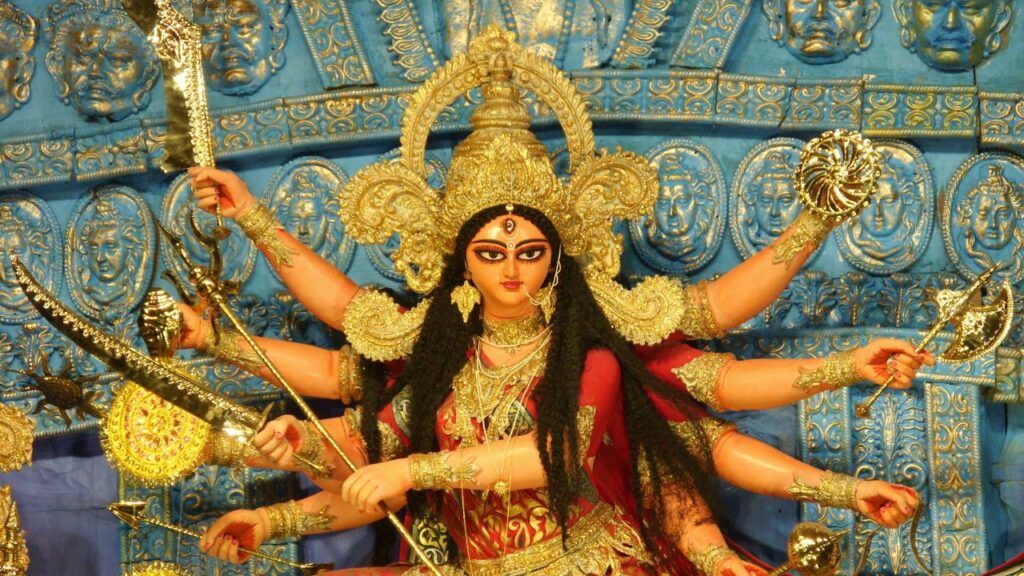
Navratri: Significance, Rituals, and Prosperity Attracting Remedies
Navratri, a festival celebrated with immense fervor and enthusiasm across India, holds profound significance in Hindu culture. Derived from two Sanskrit words, ‘Nav’ meaning nine and ‘Ratri’ meaning nights, Navratri spans over nine nights and ten days, dedicated to the worship of Goddess Durga and her various manifestations. This auspicious occasion symbolizes the triumph of good over evil and is observed with diverse rituals, prayers, fasting, and colorful festivities.
Navratri and Goddess Durga’s Forms:
Each day of Navratri is dedicated to worshipping a different form of Goddess Durga, known as Navadurga. These forms represent various aspects of divine femininity and power, including:
Shailaputri: The embodiment of nature and the daughter of the mountains.
Brahmacharini: The seeker of knowledge and wisdom, symbolizing austerity and penance.
Chandraghanta: The warrior goddess, representing bravery and protection.
Kushmanda: The creator of the universe, who radiates divine energy and light.
Skandamata: The mother of Lord Kartikeya, embodying maternal love and nurturing.
Katyayani: The fierce form of Durga, revered for destroying evil forces and demons.
Kalratri: The dark and destructive form, symbolizing the power to eradicate ignorance and fear.
Mahagauri: The epitome of purity and serenity, representing forgiveness and compassion.
Siddhidatri: The bestower of supernatural powers and blessings, symbolizing fulfillment and prosperity.
Rituals and Observances :
It is characterized by various rituals and observances, deeply rooted in tradition and spirituality. One of the prominent customs is the installation of ‘ghatas’ or earthen pots symbolizing the presence of Goddess Durga in homes and temples. The nine nights are filled with devotional songs, traditional dances like Garba and Dandiya, and elaborate puja ceremonies conducted with utmost reverence.
During Navratri, fasting holds great significance, with many devotees abstaining from certain foods or consuming only specific meals. The fasting period is believed to purify the body and mind, fostering spiritual growth and strengthening one’s devotion to the Goddess. Additionally, reciting sacred mantras, such as the Navarna mantra and verses from the Durga Saptashati, is considered auspicious, invoking divine blessings and protection.
Attracting Prosperity during Navratri:
Navratri offers a golden opportunity to attract prosperity and abundance into one’s life through various rituals and remedies. Here are some potent methods believed to enhance prosperity during this auspicious period:
Akhand Jyoti (Continuous Lamp): Keeping a continuous lamp burning throughout the nine days and nights of Navratri symbolizes the eternal light of knowledge and wisdom, dispelling darkness and ignorance.
Burning Clove and Camphor: Burning clove and camphor is believed to bring positive energy to the house, purifying the surroundings and attracting prosperity.
Offering Kheer to Maa Lakshmi: Mata Lakshmi, the goddess of wealth, is worshipped by offering rice kheer on Fridays, invoking her blessings for happiness and prosperity in the household.
Performing Havan with Mango Wood: Performing a havan with mango wood on Navami Tithi is believed to remove negative forces from the house, paving the way for happiness and prosperity.
Offering Hibiscus Flower to the Goddess: Offering hibiscus flowers, especially red ones, to Goddess Durga. It is considered auspicious, symbolizing devotion and attracting divine blessings.
Water Remedy: Placing a vessel filled with water, red and yellow flowers at the main door during Chaitra Navratri is believed to bring success in career and resolve employment or business-related issues.
Navratri is not just a festival; it’s a spiritual journey marked by devotion, introspection, and renewal. By observing the sacred rituals and embracing the divine energy of Goddess Durga, devotees can attract prosperity, happiness, and well-being into their lives, ensuring a year filled with blessings and abundance. Let us immerse ourselves in the joyous festivals, celebrating the divine feminine energy and seeking divine grace and blessings for a prosperous future.
